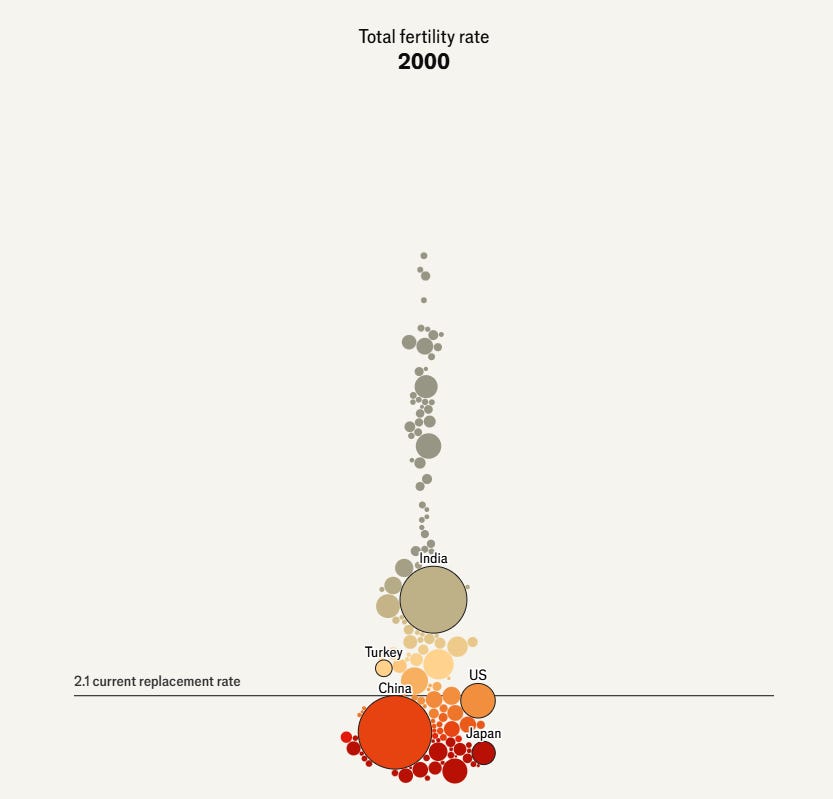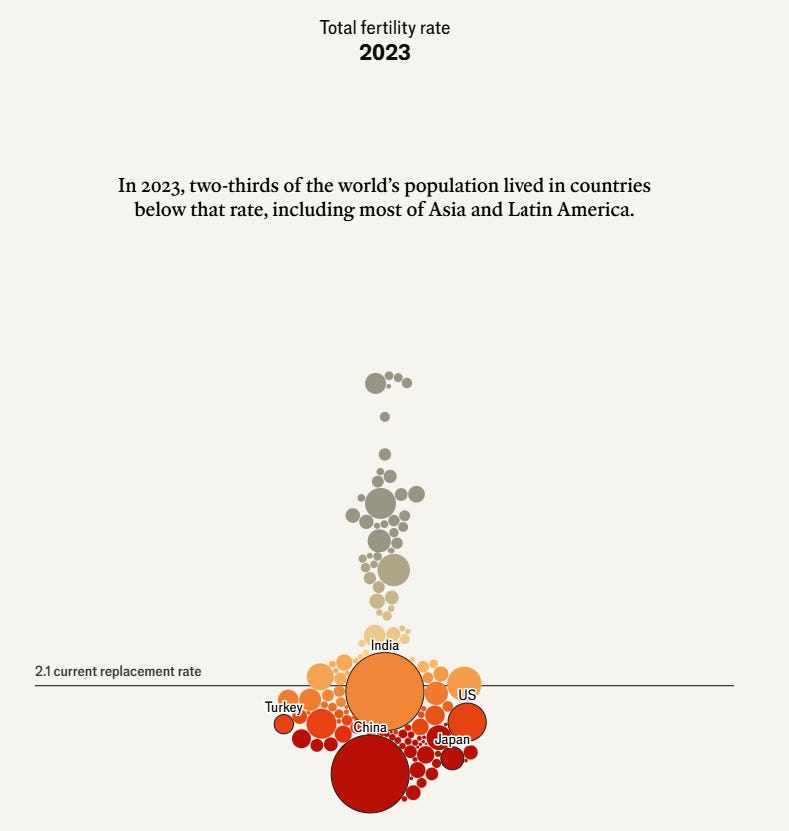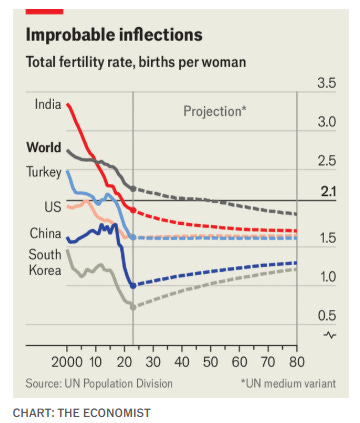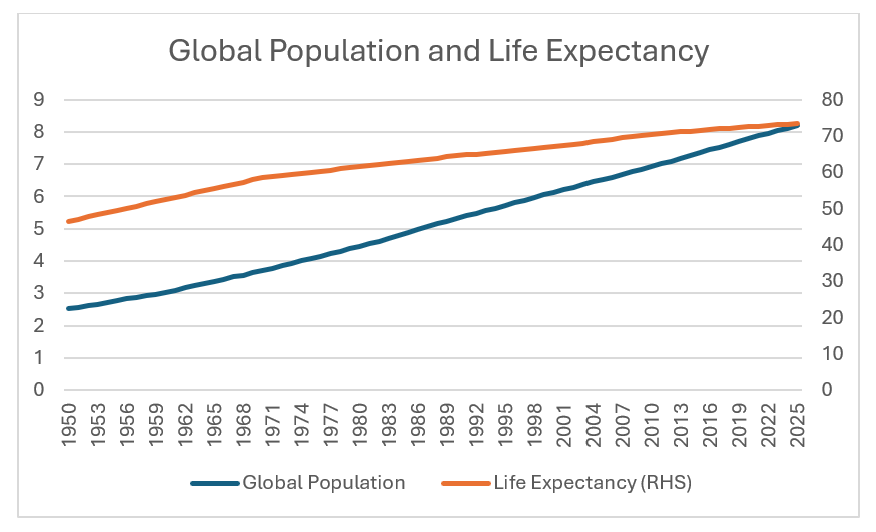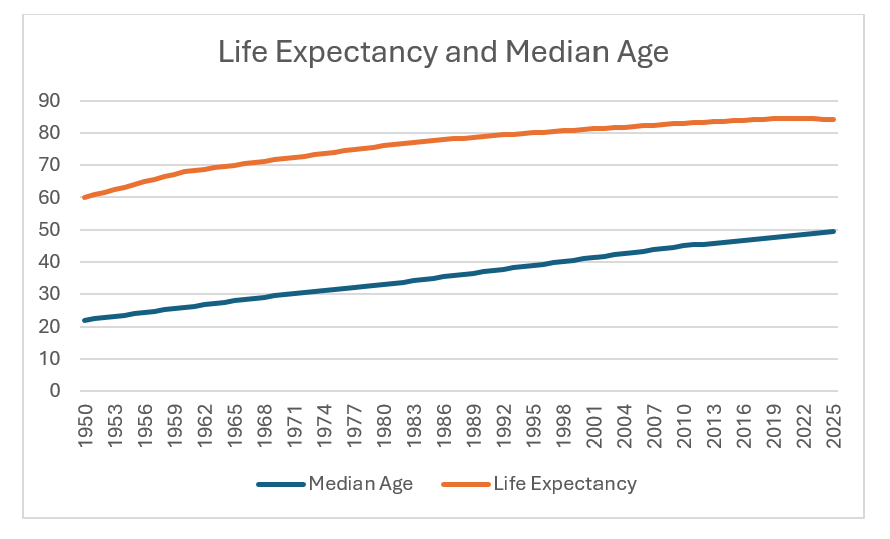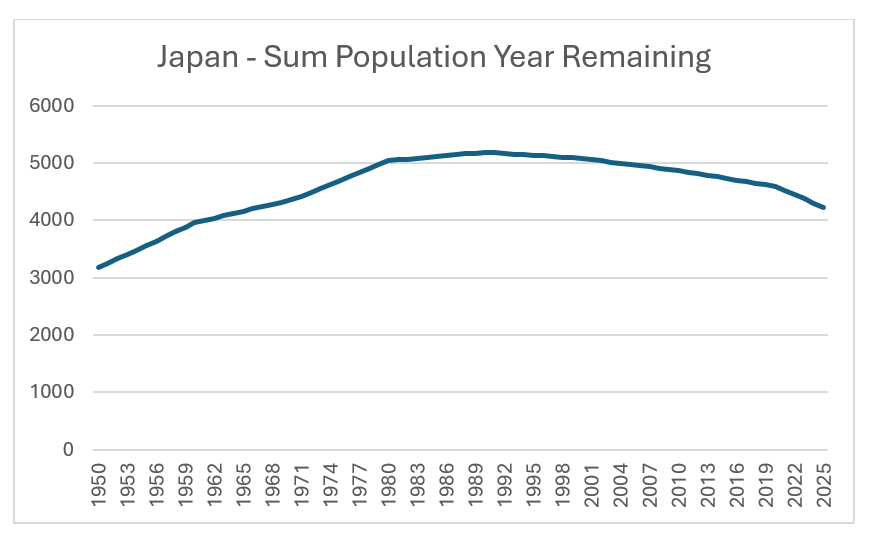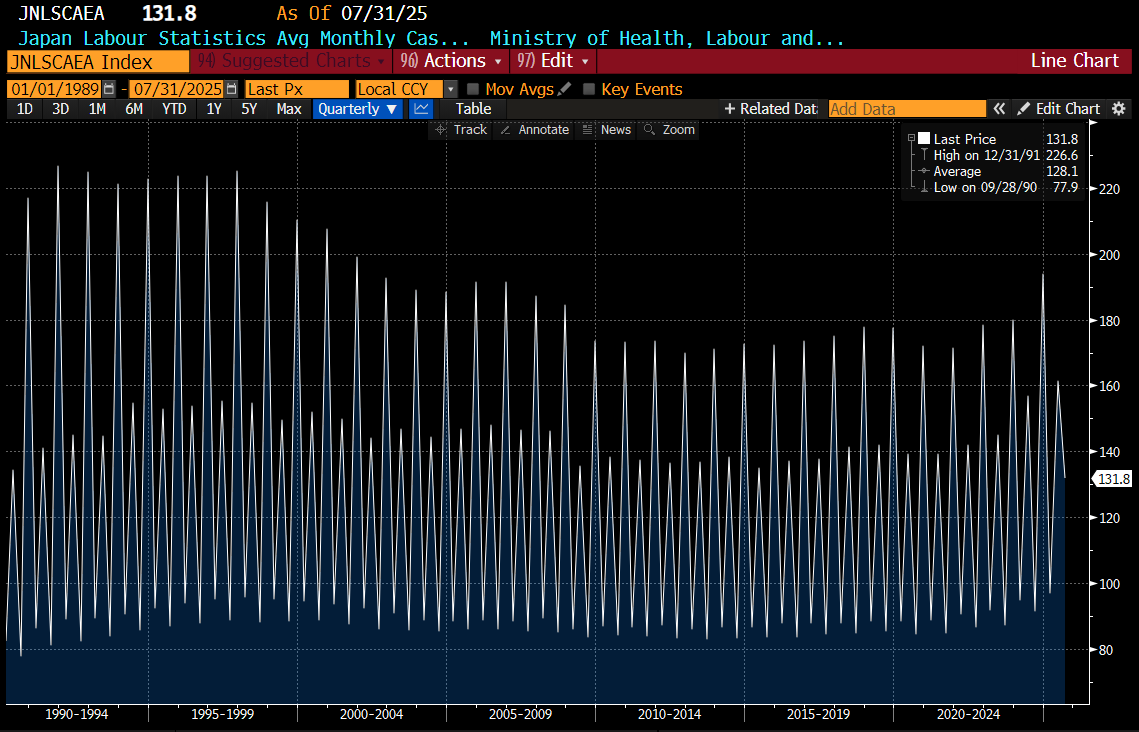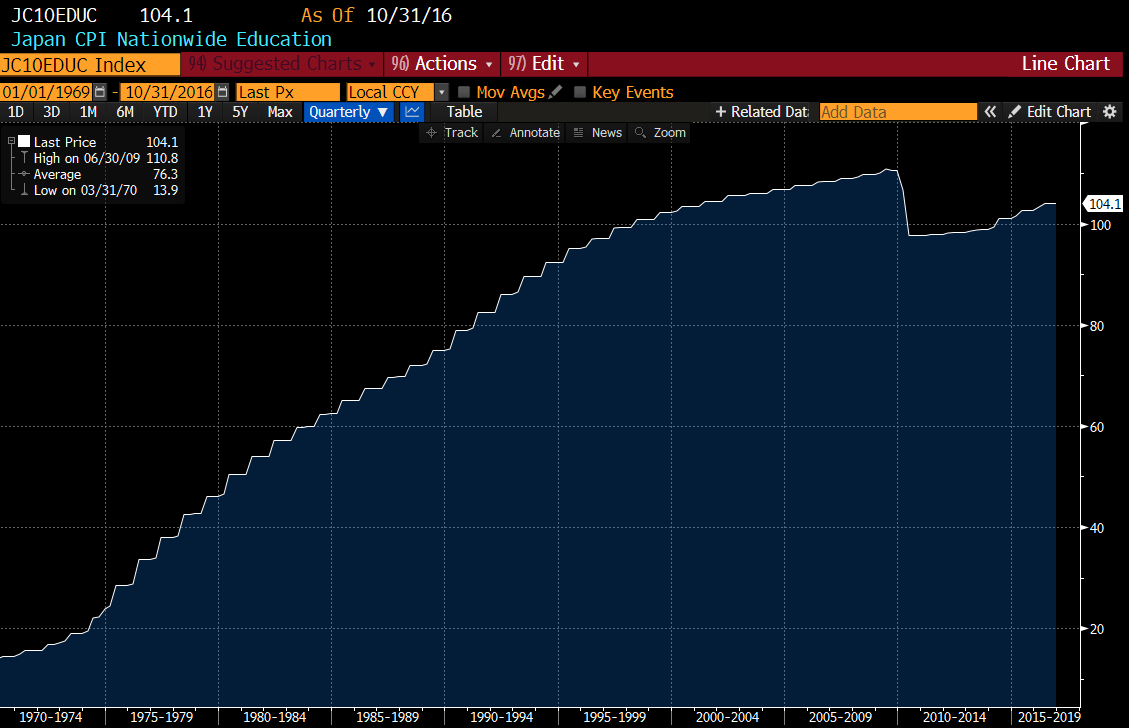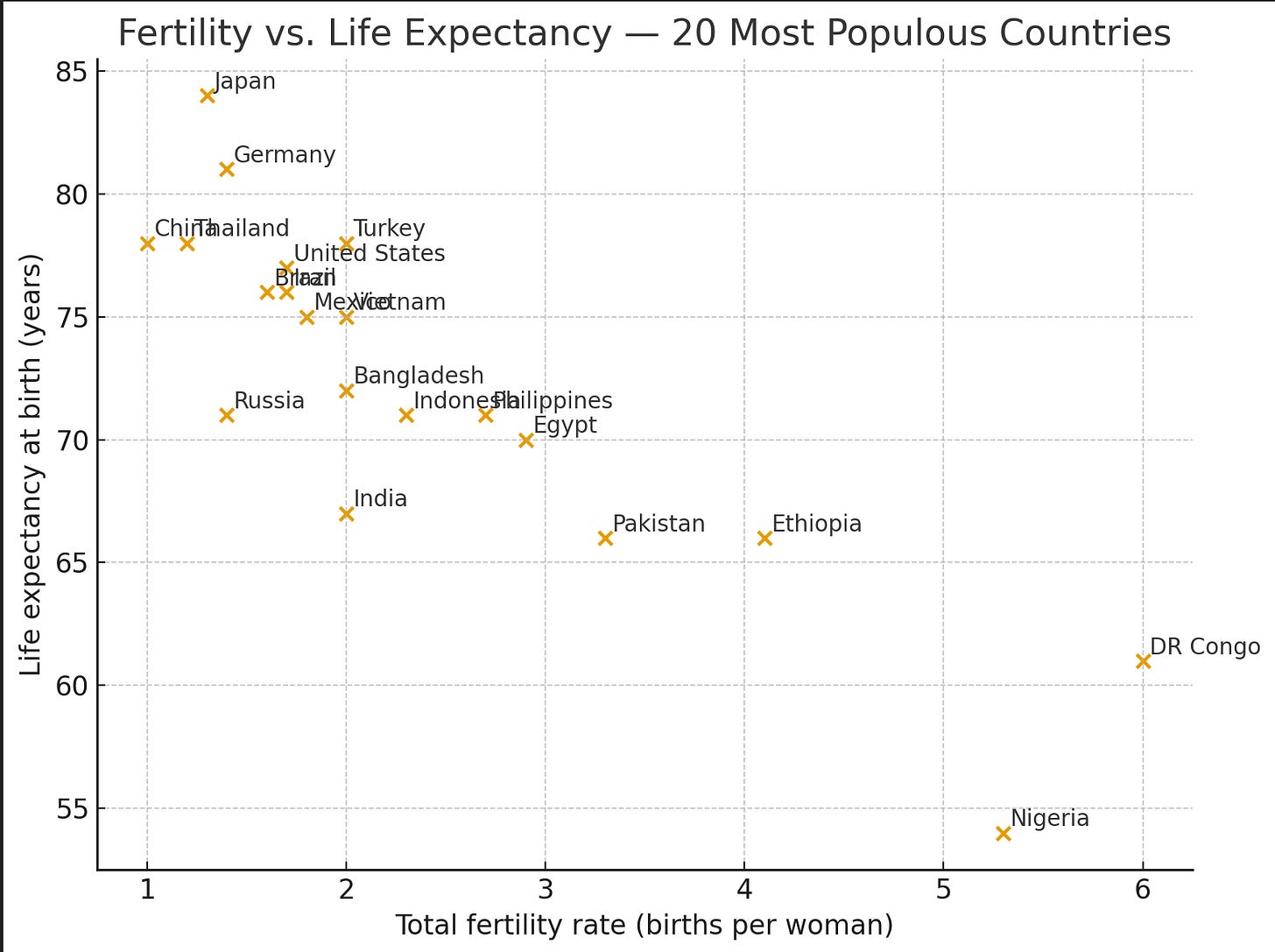Long time readers will know that I have very divergent views on fertility going forward. To make a long story short, I saw the current drop in fertility rates being driven by a 40 year cycle that favoured capital over workers - which in essence made it too expensive to have children, which I now see changing. And secondly I saw improvement in technology allowing women to have children later driving an inflection in fertility rates. As the Economist makes clear, the trends are still decisively moving to lower fertility rates.
In 2000, you could argue that Indian fertility could offset falling fertility in China and Japan. No longer.
The Economist then goes on to demolish UN population projections by showing how it assumes countries with collapsing fertility rates are suddenly forecast to rise again. Demographers were pilloried for their Malthusian forecasts in the 1970s, are trying to make amends by not baking in collapsing fertility rates. I realise I am in some ways trying to do the same thing.
The reason why demographers, and myself, have a hard time accepting the collapse in birth rates is that is would imply nations like Japan will collapse to population of 60 million from 125 million peak. This seems absurd, so you naturally want to correct for it. The other thing about collapsing fertility rates, is that they generally only occur in nature when there is overpopulation, and potentially lack of food, neither of which seems to explain the collapse in fertility. But perhaps something else is going on. While the human population has surged from 2.5 billion in 1950 to over 8 billion today, we have also seen life expectancy increase substantially from 50 to over 70 today. If you assume work life begins at 20, the average human has also doubled the time they can be gainfully employed.
I started to wonder if human populations just naturally regulate the amount of labour available. Lets look at Japan. Its population peaked out nearly 20 years ago. But Japanese life expectancy was also rising until recently. But what we want to work out is how many years of expected life was ahead of the average Japanese person. We need life expectancy as well then.
Perhaps we should think about the sum of future years of the Japanese people? That would be the sum of all years expected life of Japanese people ((life expectancy - median age)*population). One thing I like about this way of thinking is that if we are all going to live forever, then fertility rates mean nothing anyway or should be close to zero. Doing this, we found Peak Japanese Life was early 1990s, and when Japan was its most expensive.
There are some issues with this. Firstly, we need to really only look at years over the age of 20, as this is when humans start to work, and then adjust for some decline as people get to 70 or 75. Less young people, and more older people should see “working” year remaining probably still be rising in Japan until a few years ago. This matches up with Japanese wages, which have started to rise again in the last few years.
If rising life expectancy was rapidly increasing available labour, it would also lead to rising education costs, as you have a longer work life to amortise education costs. In Japan, education costs rose rapidly until the late 1990s in Japan and have stagnated since.
In pure economics terms, I am arguing that a population boom AND an increase in life expectancy seems to create and excess of labour. Certainly you can see how the longer working lives has put pressure on younger people entering the workforce. And with a longer pay off period, the costs of education rose as people could afford to invest more. The implication is that higher the life expectancy, then the lower the fertility rate. There does seem a passing correlation.
In some ways, a longer life expectancy should imply lower fertility rates. At an extreme, if human immortality was achieved, then fertility rates would likely fall to close to zero. It makes the question of fertility really a question of population health. This sort of makes sense to me - but I still feel uncomfortable about it. I need to think about it more.



